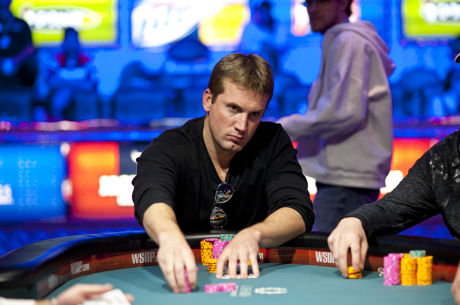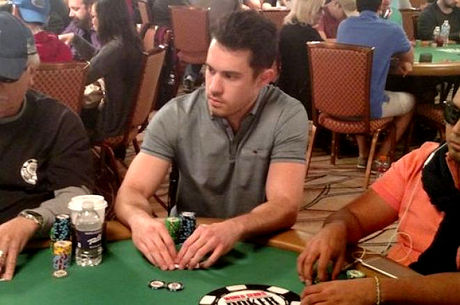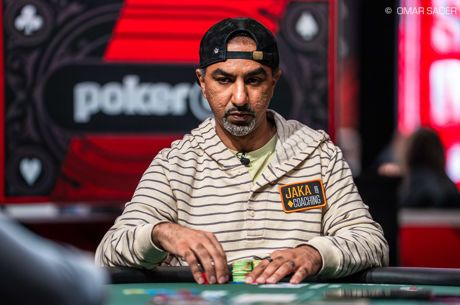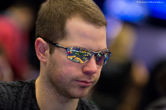In Too Deep: A Big Pot With One Mediocre Pair Early in a Tournament
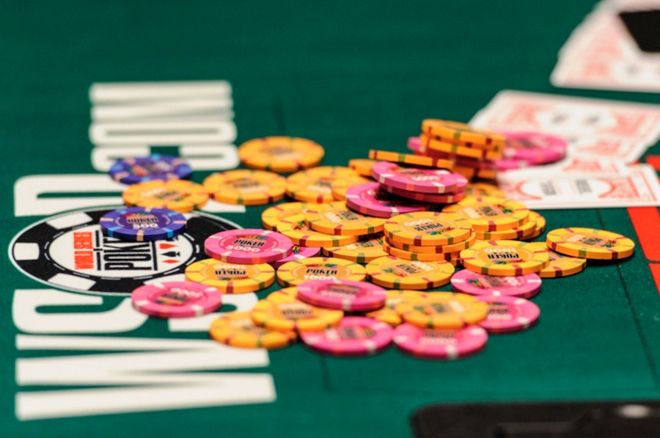
Covering live poker tournaments for a living affords me the opportunity to see countless thousands of hands played out, many of which offer interesting and potentially valuable insights into how players �� both amateurs and professionals �� play the game. In this ongoing series, I��ll highlight hands I��ve seen at the tournaments I��ve covered and see if we can glean anything useful from them.
The Scene
For this week, we're back with one final hand from the $1,675 buy-in World Series of Poker Circuit Horseshoe Council Bluffs Main Event. This hand comes from early on Day 1a, when the blinds were 100/200 without an ante.
The player two spots to my right hadn't played too many hands, but I had seen him open some weaker holdings in late position. The player on my immediate right was a younger guy who hadn't shown down any hands yet, but he had dragged one big pot and was at about 31,000 from the 20,000 starting stack.
The Action
Action folded to the player in the hijack, who raised to 500. The player in the cutoff called, and I had KxJx on the button. I raised to 1,700 with a stack of about 26,000 to start. The blinds folded, and the player who opened looked suspicious but threw his cards into the muck. The cutoff came along, though.
The dealer spread a flop of AxJx8x, and the cutoff checked. I bet 1,800, and the cutoff raised to 5,000. I called. The turn was a 6x, with no flush draw still on the board. My opponent bet 9,000, and I called once again. On the river 2x, my opponent pushed all in. I thought a while and folded.
Concept and Analysis
Usually, the conventional wisdom goes that you don't want to play a big pot with one pair early a tournament, but clearly that was lost on me in this pot as I found myself in a huge one with my stack at risk just a few levels in.
The first decision I make that starts me down this path is three-betting the KxJx. I think flat-calling is most players' default play in this spot, and it certainly might be the best way to go about things.
My thinking was that with two players in the pot, neither of whom has been out of line so far, it's going to be hard for me to win much money if I flop top pair but I certainly could lose some. I felt I'd rather take control of the betting early, especially since I'd seen the initial raiser come in with some hands I was pretty sure he would fold.
On the flop, I was very confused by my opponent's check-raise. I never expected to be check-raised on that flop, as there shouldn't be too many nutted hands that he's flatting with preflop. AxJx possibly or 8x8x make sense, but I'm not just going to go giving people credit for sets because they check-raise me once. It looked more to me like my opponent had some sort of straight draw like 10x9x or Qx10x.
My opponent kept barreling on the brick turn, and I called again. I strongly considered giving up at this point, but most of the time, I feel like players will play the river pretty honestly in these pots because it looks like I have AxKx and will he really expect AxKx to fold on the end getting the kind of price I was getting?
In the end, my opponent does jam, and I consider calling it off but decide to just salvage my last 9,000 or so as it was still early enough in the tournament for that to be a playable stack.
I've still wondered about this one, because my opponent reps so few hands in this spot. These one mediocre pair hands in big preflop pots are some of the most interesting, because there's enough out there to give opponents incentive to try to bluff you off of one pair. I think you're just giving up too much if you always fold.
However, I think I probably should have just given this one up when my opponent bet huge on the turn. I've shown some resistance to his postflop raise and repped a strong hand on every street. Absent any sort of real read that my opponent was capable of pulling off a big move, it's a dicey proposition to play a huge pot with second pair this early.
If it was a bluff, then very nice hand to my anonymous opponent.
Want to stay atop all the latest in the poker world? If so, make sure to get PokerNews updates on your social media outlets. Follow us on Twitter and find us on both Facebook and Google+!

